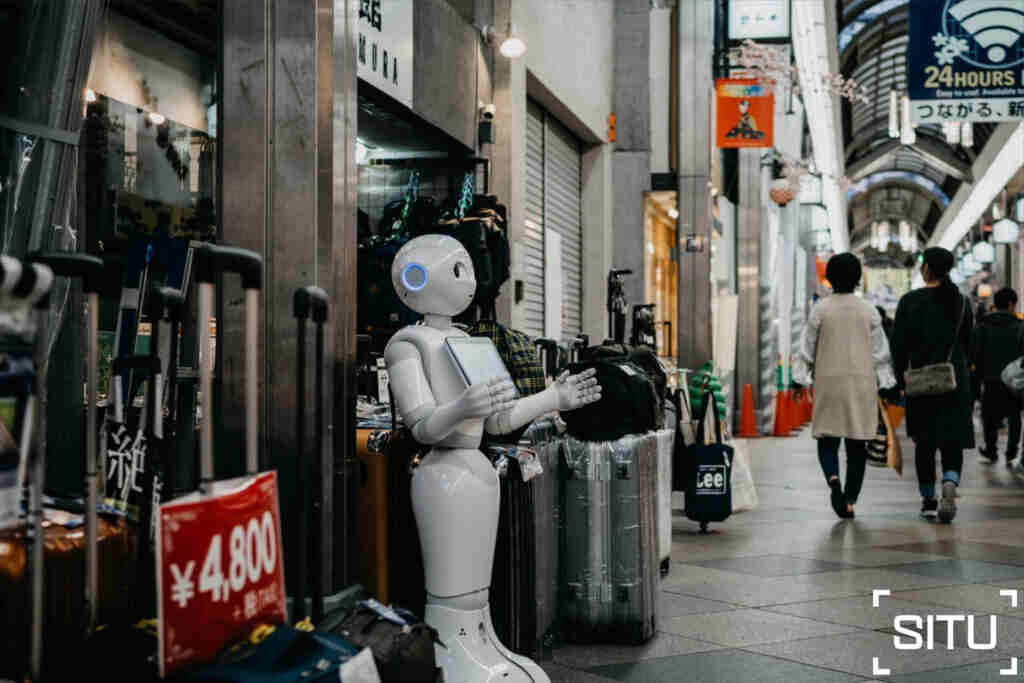
In the world we now live in technology is everywhere. It is also continuing to rapidly change, at such a pace where the impacts of the ‘digital revolution’ often go unrecognised or unnoticed. This is no different for technology in corporate travel either.
At the current rate, over 40% of jobs will disappear in the next twenty-five years. Research suggests five million workers will also lose their jobs to robots. As daunting as this may seem, we still continue to buy into the pleasures of technology. The world’s population on average stream over fifty-six million hours of music, watch over 250 million hours of content on Netflix and send over 500 million tweets every day.
However, what does an era of technological change mean for corporate travel and serviced apartment living? In this blog, we outline some of the most influential technological developments we believe can change the course of corporate travel for the foreseeable future.
Robo-Hospitality
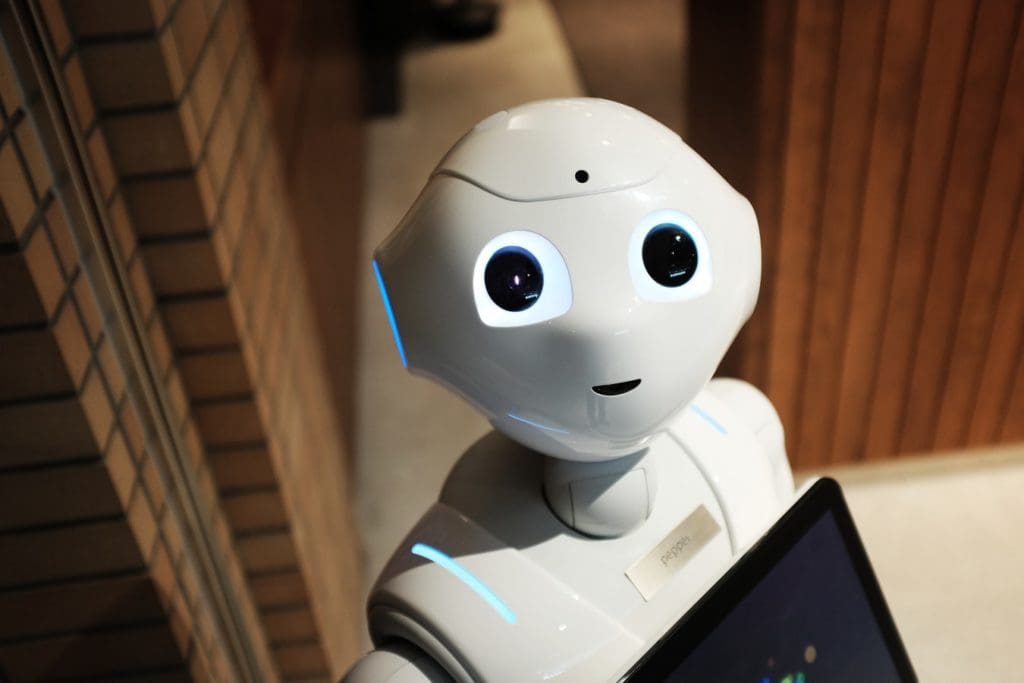
Nowadays, guests staying in corporate housing and serviced apartments should not be surprised to be greeted by a robotic assistant. High-end accommodation providers are pushing the boat out where they can to accommodate
Dubbed as one of the best robot travel companions is the Travelmate suitcase. The autonomous suitcase can move in any direction to navigate hazards, different terrain and other people.

A built-in GPS and the supporting Travelmate smartphone app also allows owners to track their case at all times. With this product, the struggles of lugging a suitcase around the airport or serviced accommodation could be no more.
There has also been a push from corporate accommodation providers to make in-room experiences for guests less stressful too. Although the Amazon Echo and it’s voice-activated virtual assistant products have been around a while now, the summer of 2018 saw the global enterprise make a move to integrate their products into hospitality.
However, although the devices were put in place to help guests adjust room features, such as heating and lighting, they have not received an overwhelming amount of support. Ultimately, corporate guests fear the devices are listening to them. There is still hope though that Amazon Echos can adapt to become a household feature of guest’s rooms.
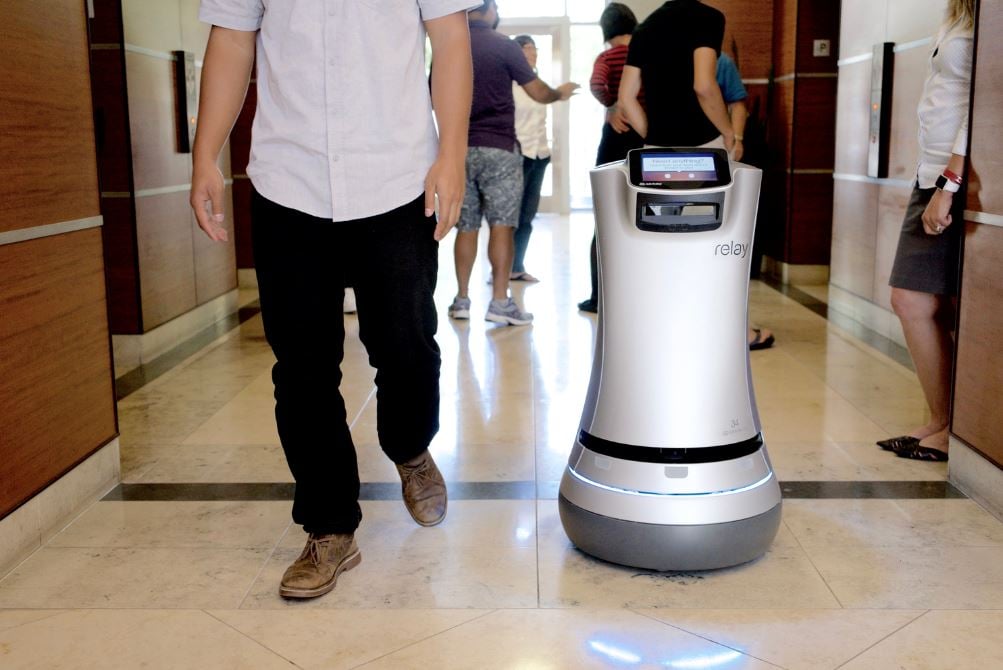
On the other hand, reviews about Savioke’s Relay robot are predominantly positive.
It would seem this robot was a stroke of genius. It could save staff members time and add to the ease of a guest’s stay. This ‘Robot Butler’ (capable of riding elevators remember!) is sure to be assisting guests in serviced accommodation worldwide in the years to come.
The Future of Airports
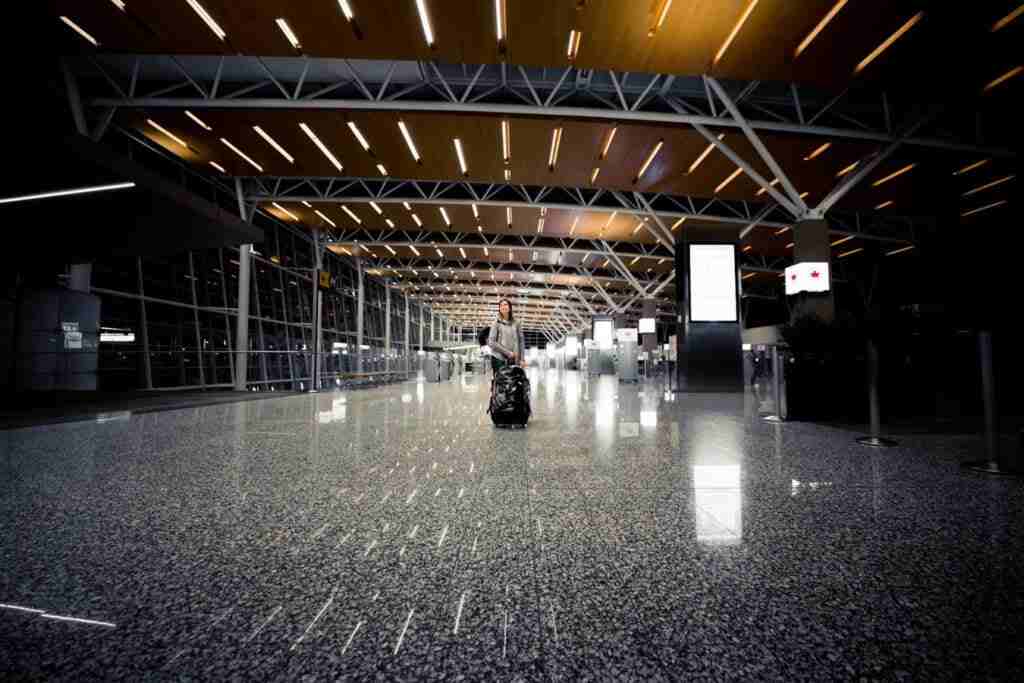
Not many would contest that the most boring, and potentially stressful, aspect of any corporate travel experience is the time spent in the airport. However, the future is bright for airports, with new tech developments hoping to enhance security, comfort and transport. For instance, corporate travellers passing through JFK International Airport are in for a treat when they realise there is now a VR outpost on Terminal 4.
However, corporate travel may have left some with little enthusiasm to embrace the lively, energetic VR experience. Therefore, the newly introduced AirPods may be a better alternative. Passengers across many European Airports can swap the discomfort of airport chairs for these nap pods. Hourly rental also enables travellers to enjoy free Wi-Fi, air conditioning, Netflix and somewhere to simply enjoy some alone time. Furthermore, these little slices of personal paradise even have alarm clocks to ensure you do not miss your flight.
Plans are underway to make transport to-and-from airports less stressful too. For example, a significant partnership has been made recently between Fraport AG (the transport company which manages Germany’s Frankfurt Airport) and Volocopter, a multi-rotor electric aircraft specialist. The plan is to allow electric air taxi services to function through the world’s eighth busiest airport.
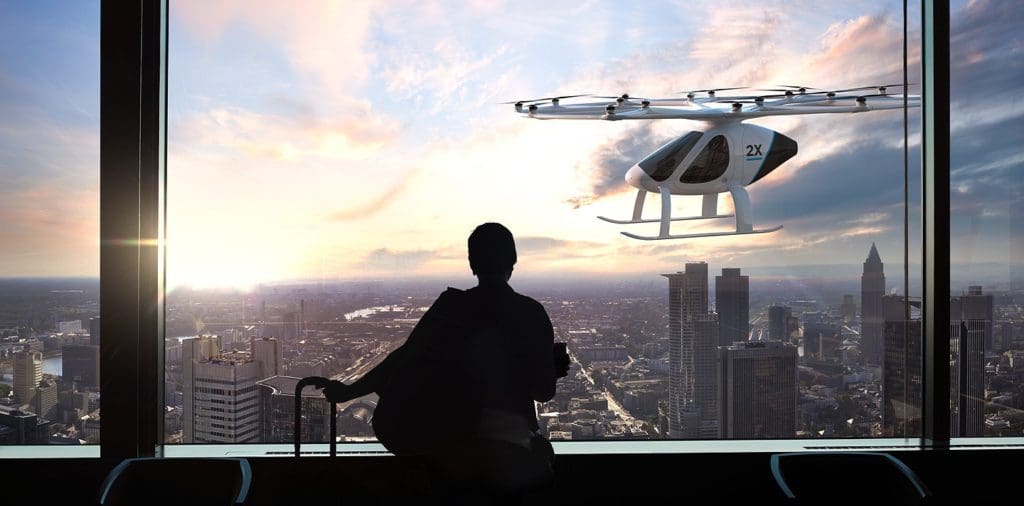
Equipped with eighteen motors, a non-combustion engine and powered by high-capacity batteries, Volocopter’s fully electric aircraft is understood to be able to transport two passengers up to eighteen miles. Working alongside the multinational corporation Intel, Volocopter’s aircraft have the backing to become a revolutionary addition to the corporate travel and serviced accommodation industry.
Robotics are also advancing to help airports through a period of heightened security measures. Whilst the company Knightscope believe their product does not need to replace the human workforce, their security robot may become a customary safety measure across a range of establishments in the years to come. The ‘K5’ security robot, weighing four hundred pounds and standing six feet tall, can patrol inside and out, prowling for any suspicious activity.

The secret behind the robot is its sensors and infrared cameras. Its features include blacklisting anyone considered to be an intruder, making out license plates from long-distance and providing 24/7 surveillance. They could also save a workforce hours of time and investigate somewhere others may be less enthusiastic to patrol. Therefore, it may not be long before these bots are patrolling corporate accommodation and airports worldwide as a household figure of security.
Gadgets for Corporate Travel
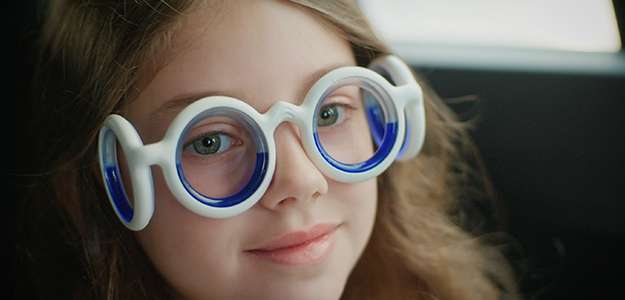
As well as the tech inventions and developments already mentioned, we also wanted to mention some of our favourite new travel gadgets. Sometimes, it is the small things that matter most whilst travelling or staying in serviced accommodation. This is certainly the case for some new devices.
First, and probably most bizarre are Citroën’s Seetroën glasses. They are supposedly the world’s first glasses capable of curing motion sickness. However, it would come as no surprise that some would probably rather risk feeling poorly then wear what could be deemed an eyesore in itself!
Likely to be slightly more popular is the very clever virtual reality time travel app, Timelooper. The app aims to enhance the experience of someone visiting tourist attractions and sites around the world. The company’s mission is “to help people see the unseeable and move them into the middle of the story”. The ‘virtual reality’ is shown through a 360-degree video, replicating on your smartphone a past time period associated with a certain site. What better way to pass the time between business meetings then see with your own eyes the history behind a location you are visiting.
Whilst travelling to new places can be fun and interesting, many find trips are hindered by translation issues. You may find yourself unable to understand a member of staff at your serviced apartment or struggle to hold a conversation with a foreign corporate you have arranged to meet.
However, Waverley Labs has now launched the incredibly helpful ‘Pilot’ earbud. The product is capable of translating someone else through the earpiece so they could be understood in the listener’s language, and vice-versa. Watch the video above for a more in-depth description of this device and how it could forever break language barriers.
In this day and age, it is fair to say that technological influence is at its peak. A mixture of emotions towards new products is understandable too. Whilst the introduction of autonomous robots could be daunting to some, there is a good chance tech development could make corporate travel as easy as its ever been. Only time will tell though what technology has in store for us and guest’s stay in serviced accommodation.


Comments are closed.